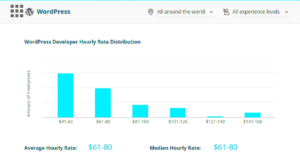In today’s global marketplace, expanding your e-commerce site to cater to Spanish-speaking customers can be a game-changer. With over 580 million Spanish speakers worldwide, tapping into this audience not only broadens your reach but also enhances customer engagement. However, simply translating your content isn’t enough; it requires a nuanced understanding of language and culture. This is where professional Spanish translation services come into play. In this blog post, we’ll explore the best Spanish translators specifically tailored for WordPress e-commerce sites.
Importance of High-Quality Translation in E-commerce

When it comes to e-commerce, high-quality translation isn’t just a luxury; it’s a necessity. Let’s break down why investing in quality translation can significantly impact your business:
- Credibility and Trust: A well-translated site signals professionalism. Customers are more likely to trust a business that communicates effectively in their language.
- Improved User Experience: Clear and accurate translations enhance navigation, making it easier for customers to find what they’re looking for, ultimately leading to higher conversion rates.
- Cultural Relevance: High-quality translation goes beyond words; it involves adapting content to resonate with local customs, idioms, and preferences. This can make your marketing campaigns much more effective.
- SEO Benefits: Optimizing your site in Spanish can improve your visibility in Spanish-speaking regions. High-quality translations with relevant keywords can enhance your search rankings.
In summary, investing in top-notch Spanish translation services can lead to increased sales, better user engagement, and a stronger brand presence in the Spanish-speaking market.
Key Features to Look for in a Spanish Translator for WordPress

When selecting a Spanish translator for your WordPress e-commerce site, it’s crucial to consider certain key features that can make or break your user experience. Not all translation tools are created equal, and the right one can significantly impact your site’s reach and effectiveness. Here’s what you should look for:
- Accuracy of Translation: The primary function of any translator is accuracy. Look for plugins that utilize advanced algorithms or even human proofreading to ensure translations are precise and contextually relevant.
- User-Friendly Interface: A translator should be easy to navigate. Choose tools that seamlessly integrate with your existing WordPress setup, allowing you to modify your content without a steep learning curve.
- SEO Optimization: The best translators don’t just stop at language. They also ensure that your SEO practices are maintained across languages, so your Spanish content ranks well in search engines.
- Multilingual Support: If you ever plan to expand beyond Spanish, look for tools that support multiple languages. This will save you time and effort in the long run.
- Automatic Updates: Websites often evolve, and so does their content. Opt for translators that automatically update when new content is added, ensuring your Spanish translations are always current.
- Customer Support: Finally, consider the level of customer support available. A reliable plugin will have responsive support to troubleshoot any issues or questions you may have.
Top Spanish Translator Plugins for WordPress
With so many translation plugins available, it can be overwhelming to choose the right one for your WordPress e-commerce site. To help narrow it down, here’s a list of some of the top Spanish translator plugins worth considering:
| Plugin Name | Key Features | Pricing |
|---|---|---|
| WPML |
|
Starts at $29/year |
| Weglot |
|
Free for first 2,000 words, then starts at €10/month |
| TranslatePress |
|
Free version available, premium starts at $79/year |
| GTranslate |
|
Free for basic features, premium starts at $5/month |
When choosing a plugin, it’s important to consider your site’s specific needs, including budget, the volume of content, and the level of language proficiency you desire. With the right tool, translating your e-commerce site into Spanish can open up a wealth of opportunities!
Comparative Analysis of Popular Translation Tools
When it comes to translating your WordPress e-commerce site into Spanish, there are an array of tools to consider. With each tool offering unique features, it’s important to do a comparative analysis to find the best fit for your needs. Here’s a breakdown of some popular translation tools:
| Translation Tool | Key Features | Pros | Cons |
|---|---|---|---|
| WPML | Multilingual support, SEO optimization, automatic translation | Robust functionality, great for large sites | Costly for small shops, some learning curve |
| TranslatePress | Visual translation interface, real-time translation | User-friendly, supports manual and automatic translations | Limited free version, may require add-ons |
| Weglot | Automatic translation, easy integration, SEO-friendly | Fast setup, great customer support | Pricing based on word count, can get expensive |
| GTranslate | Google Translate integration, SEO-friendly | Affordable, quick and easy to use | Automatic translations may lack nuance |
| Lingotek | Cloud-based translation, collaboration tools | Great for teams, scalable solutions | Setup can be complex, may require tech support |
Ultimately, the choice will depend on your specific needs, budget, and the size of your e-commerce operation. Comparing these tools can help ensure you select the one that best aligns with your business goals.
How to Choose the Right Translator for Your E-commerce Site
Selecting the right translator for your e-commerce site is a crucial step that can significantly influence your brand’s global success. Here are some key factors to consider when making your choice:
- Expertise in E-commerce: Look for translators who have experience in translating e-commerce content. They should understand product descriptions, customer reviews, and marketing language.
- Language Proficiency: Ensure that the translator is a native Spanish speaker with a strong command of both English and Spanish. This ensures that translations sound natural and professional.
- Cultural Understanding: The best translators don’t just translate words; they translate meanings. A good translator should have a deep understanding of cultural nuances and tendencies to ensure localization is done right.
- SEO Knowledge: A translator who understands SEO best practices can help optimize your content for search engines in Spanish. This is crucial for driving traffic to your e-commerce site.
- Testimonials and Portfolio: Check the translator’s previous work and testimonials from clients. This can give you a good idea of their style, quality, and reliability.
- Communication Skills: A translator should not just be skilled in language but also be an excellent communicator. Good communication ensures that your needs are understood and met throughout the translation process.
By considering these factors, you can find a translator who not only helps you communicate effectively with your Spanish-speaking customers but also enhances your brand’s appeal in the global market.
Best Practices for Implementing Translations on Your Site
Implementing translations on your WordPress e-commerce site can seem overwhelming, but following some best practices can make the process smoother and more effective. Below are valuable tips to ensure your translation efforts are successful and your content resonates with your Spanish-speaking audience.
- Use a Reliable Translation Plugin: Choosing the right plugin is crucial. Consider options like WPML or Polylang, which offer robust features specifically designed for e-commerce sites.
- Prioritize SEO: Don’t forget about search engine optimization in the target language. Optimize your translated content with relevant keywords, meta descriptions, and alt tags for images.
- Engage Professional Translators: Automated translations can be error-prone. Hiring a professional translator who understands cultural nuances ensures a high-quality output that appeals to your audience.
- Keep Your Content Consistent: Make sure your original content and translated content align perfectly. Regularly update both to maintain uniformity across languages.
- Utilize Hreflang Tags: Implementing hreflang tags helps search engines understand which language version of your page to show, improving your site’s visibility in different regions.
- Test Your Translations: Before going live, test all features in the Spanish version to ensure everything works as intended. This includes product descriptions, checkout processes, and payment gateways.
By following these best practices, you can enhance the shopping experience for your Spanish-speaking customers while also boosting your site’s performance and credibility.
Case Studies: Successful E-commerce Sites Using Spanish Translation
Several e-commerce sites have successfully implemented Spanish translations, leading to impressive results. Here, we’ll explore a few case studies that highlight the effectiveness of proper translations in reaching a broader audience.
| Company | Translation Strategy | Results |
|---|---|---|
| Amazon | Custom translations using native speakers in key markets. | Increased sales by 30% in Spanish-speaking regions. |
| Zalando | Localized content with a focus on cultural relevance. | Boosted user engagement and reduced bounce rates by 25%. |
| eBay | Utilized professional translation services for product listings. | Expanded seller reach and increased transactions by 40%. |
These examples showcase that when businesses invest time and resources into effective translations, they not only enhance user experience but also significantly increase their market potential. By learning from these successful case studies, you can apply similar strategies to your own e-commerce site and set the stage for success in Spanish-speaking markets.
Best Spanish Translators for WordPress E-commerce Sites
In the digital age, having a multilingual website can significantly boost your e-commerce presence. Specifically, for WordPress sites, integrating a quality Spanish translation can enhance customer engagement and expand your market reach. Below are some of the best Spanish translators available for WordPress e-commerce platforms:
- WPML (WordPress Multilingual Plugin)
WPML is a powerful tool that allows you to create a multilingual e-commerce site effortlessly. It supports various languages, including Spanish, and integrates with popular WordPress e-commerce plugins.
- TranslatePress
This user-friendly plugin allows you to translate your entire WordPress site directly from the front end. Spanish translation is made simple with its visual interface, making it ideal for site owners without coding knowledge.
- GTranslate
Utilizing Google Translate, GTranslate can automatically translate your WordPress site into Spanish. It offers flexibility and ease of integration, though the translation quality may vary.
- Lingotek Translation
Lingotek provides professional translation services that can integrate with various WordPress plugins. It is best suited for businesses looking for high-quality human translation in Spanish.
| Plugin Name | Ease of Use | Translation Quality | Integration |
|---|---|---|---|
| WPML | Moderate | High | Excellent |
| TranslatePress | Easy | High | Good |
| GTranslate | Easy | Variable | Good |
| Lingotek | Moderate | Very High | Excellent |
By choosing the right Spanish translator for your WordPress e-commerce site, you enhance user experience, build trust, and ultimately drive sales by catering to a broader audience.



